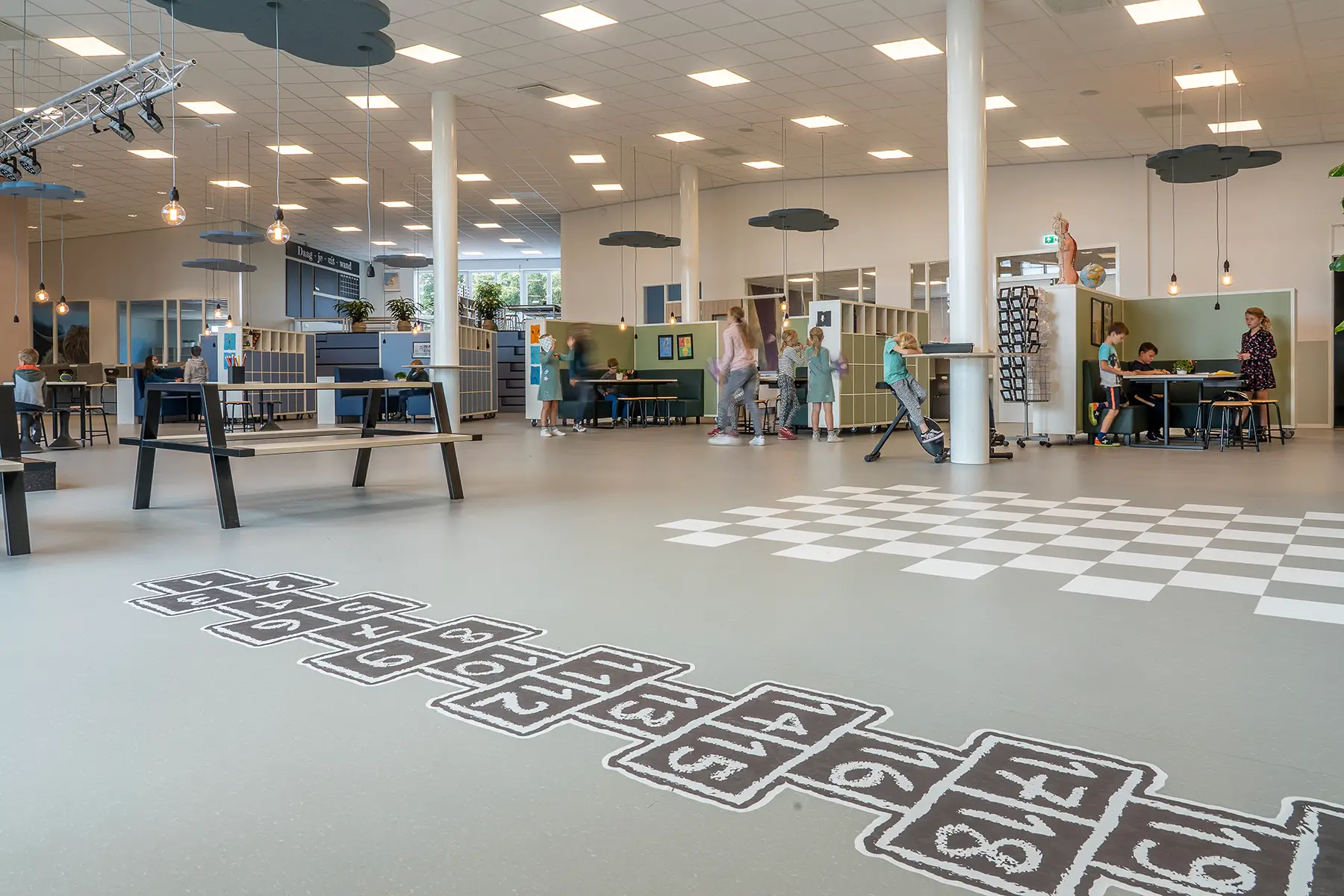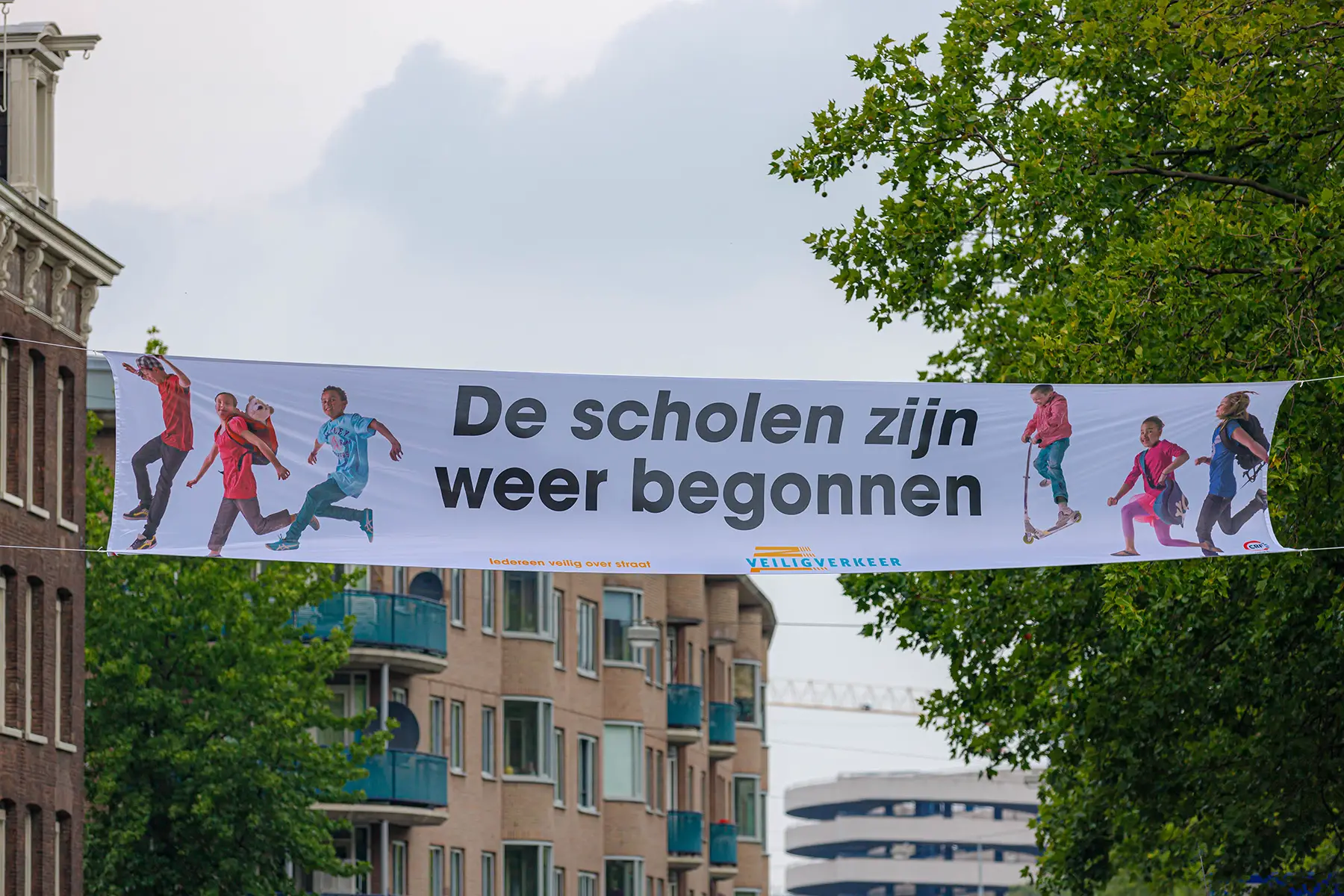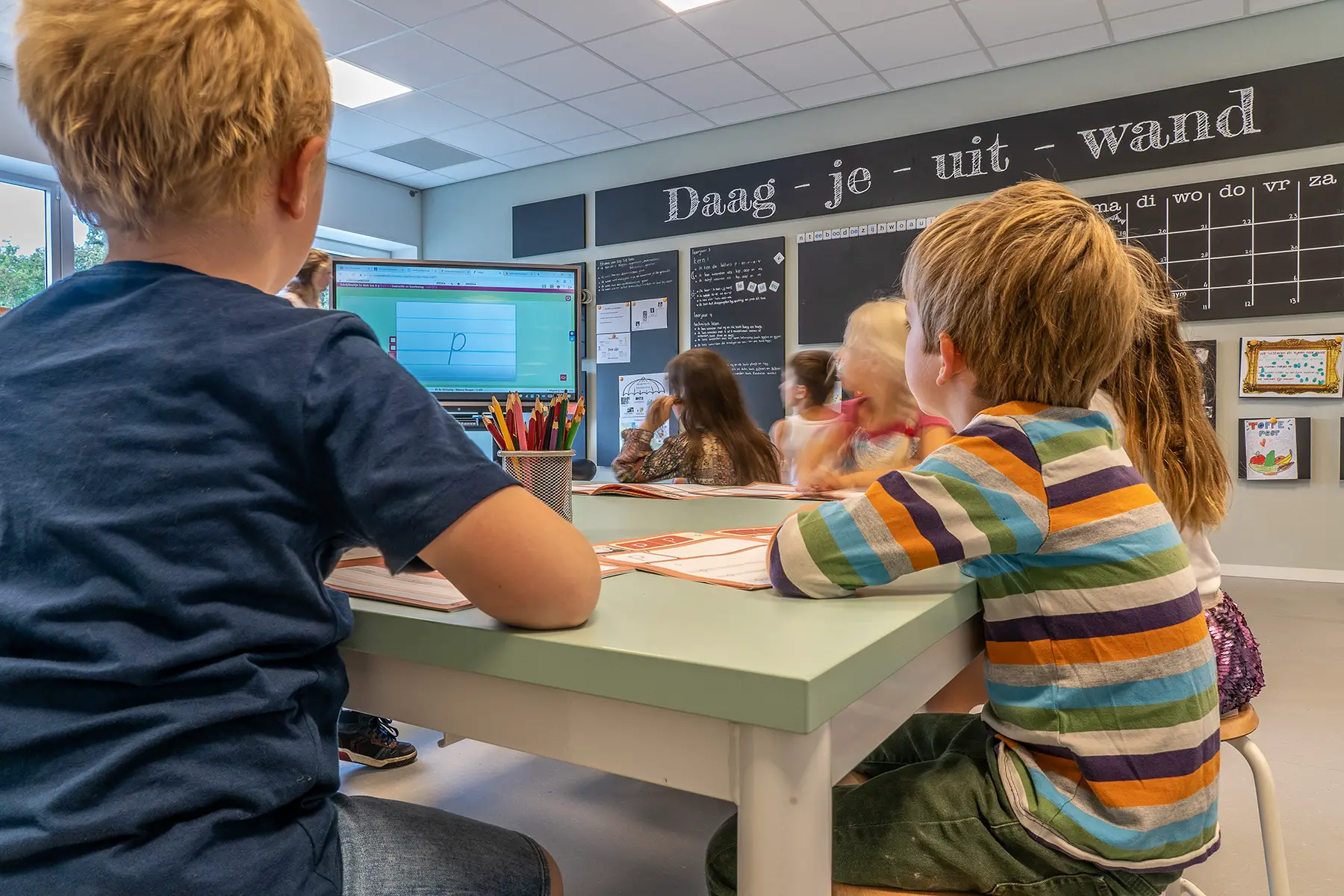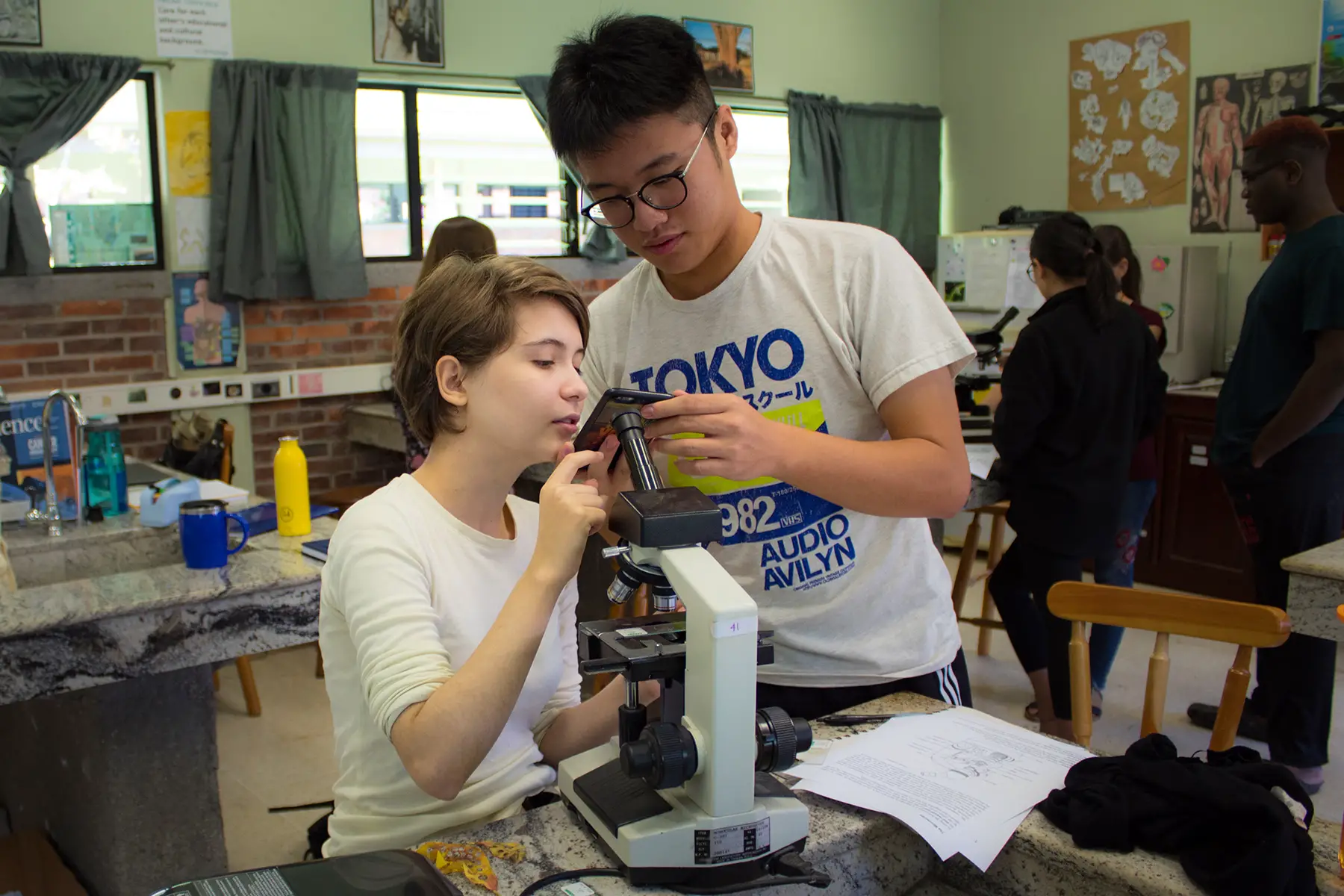As an expat haven in northern Europe, the Netherlands is a small country hosting people from all over the world. Fortunately, parents in search of quality education for their kids have many options of international schools in the Netherlands.
This article will review the Dutch education system, the various types of international schools, as well as international school fees in the Netherlands. Between varied teaching methods, curricula, student body composition, and cost, parents will need to do research to find the right fit.
- The Dutch education system
- International schools in the Netherlands
- Types of international schools and certificates
- Dutch International Schools (DIS)
- Government-funded bilingual schools (TTOs)
- International Primary Curriculum (IPC)
- International Baccalaureate in the Netherlands
- American international schools and Advanced Placement
- British international schools
- International GCSE (IGCSE)
- Other national international schools
- Religious schools
- Method schools
- Should you send your child to an international school?
- How to choose an international school in the Netherlands
- Useful resources
Amity International School Amsterdam
Amity International School Amsterdam is a global learning environment located in Amstelveen for students from 3–18 years old. As an accredited IB World School, it offers the IB Continuum for the Primary Years Programme, the Middle Years Programme, and the Diploma Programme. Amity provides a broad, thorough education for all ages that combines academic excellence with a variety of opportunities in sciences, the arts, and more. See what future Amity could offer your children today.
The Dutch education system
The Dutch education system begins from the premise that education should be free; so, you’ll find that government subsidies apply to both normal public schools as well as some specially affiliated ones, such as Montessori, Dalton, and some religious and international schools. Generally, most Dutch students attend public schools, most of which teach in Dutch. Expats, then, have the choice between enrolling their students in Dutch public schools, allowing them to integrate a little more fully (and learn the language!), and choosing a public or private international school.
International schools in the Netherlands
The Netherlands is a business hub that attracts people from all over the world. In fact, in recent years, it’s become so popular for expats that it can be quite difficult to find an international school that is accepting new students. Waiting lists are definitely the norm here, some stretching as long as two to four years, depending on the city.

Generally, the hallmark of international schools is that their student body is expat-heavy; they also usually teach in English or another non-Dutch language, depending on the school affiliation. Finally, the curriculum at international schools is usually internationally accepted, such as the International Baccalaureate, or geared towards a particular nationality, such as an American school. You’ll find international schools that serves all educational levels as well as some that only serve particular grades.
Types of international schools and certificates
Parents who know that they don’t want their children to attend a normal public school have a few options. Because the Dutch government provides equality in education choice, certain private schools or Dutch international schools (typically those following religious or pedagogic principles) can claim the same subsidies as public Dutch schools. So, expats have the choice between private international schools, which usually charge higher fees, and Dutch International Schools (DIS).
Dutch International Schools (DIS)
DIS’ are partially funded by the government, and so there are restrictions about who can attend. Generally, these schools are attached to regular public schools and aim to prepare students for either an educational transition abroad or a transition to the Dutch education system. They teach in English, but students also learn Dutch.
Depending on the school, DIS’ can offer various educational models such as the International Primary Curriculum (IPC), the British Curriculum, and International Baccalaureate. DIS’ charge much lower fees than privately funded international schools: annual primary fees generally range between €3,600 to €6,600 while secondary costs can range between €5,500–8,500.
- HSV International Primary School
- International School of The Hague
- International Waldorf School The Hague
Who can attend Dutch international schools?
Government-subsidized international schools are only accessible to certain families, so be sure to check your eligibility:
- Children of expats who are living or working in the Netherlands for an extended period of time
- Children of Dutch parents who have lived and attended school abroad
- Children of Dutch parents who are living in the Netherlands temporarily

Government-funded bilingual schools (TTOs)
17 Dutch primary schools and over 130 secondary schools offer a bilingual curriculum. The purpose of these TTO (Tweetalig onderwijs) schools is different than the DIS mentioned above. If the DIS are for international students to integrate within the Dutch education system during their family’s stay in the Netherlands, TTOs are rather geared towards local students gaining a more international education. The Dutch curriculum is respected, with some of the courses offered in Dutch and others in English (or in another language, such as German at the TTO schools close to the southern border).
Many of these schools award an IB-certificate English A2, or a Cambridge Certificate upon graduation to prove the student’s level of English, on top of their regular VMBO, HAVO, or VWO-diploma.
- Winford Bilingual is a TTO primary school with a branch in Amsterdam and one in Haarlem, using the IPC to prepare children for further international education. With two teachers per classroom (one per language), they base their methods on the Montessori philosophy.
- Supreme College Nederland in Castricum is a TTO, offering the MYB program of the International Baccalaureate in addition to the VWO, at a fraction of the cost of a private international school.
It is important to note that a student needs to speak Dutch well before they can enroll at a bilingual school, since all the final exams are in Dutch. If students don’t speak Dutch, they should first attend a Dutch immersion class, called ISK.
International Primary Curriculum (IPC)
The International Primary Curriculum is a globally recognized curriculum that prioritizes intercultural awareness, student engagement, and academic rigor. So, each subject has learning goals tied to student’s personal and community development. Generally, IPC is for students between the ages of five and 12 and is essentially an adaptation of the UK curriculum for international schools. Here are a few international schools that offer IPC:
- Eerde International Boarding School
- International School Leiden
- Nord Anglia International School
- Winford Bilingual Primary School
International Baccalaureate in the Netherlands
The International Baccalaureate is internationally recognized as a rigorous and structured program. Overall, students focus on essay writing, service projects, theory of knowledge, and critical thinking.
Generally, those who graduate from the Diploma Program will have studied science, the arts, language, literature, and math; graduates also take a challenging exam at the end of their secondary studies. For students planning to apply to university across the globe, an IB Diploma is very helpful simply because it is so recognized and respected. Conveniently, you’ll find 23 IB schools in the Netherlands. Here are a few of the schools offering IB:
- Amity International School
- The International School of Amsterdam
- Rotterdam International Secondary School
- Supreme College Nederland
- UWC Maastricht
American international schools and Advanced Placement
American curriculum schools follow the academic system of the United States, which divides study into elementary, middle, and high school. Generally, graduating with a diploma requires that students fulfill the school’s requirements and pass their classes and exams. Subjects include English, social studies, math, science, and often a foreign language.
Overall, an American diploma is extremely useful for students planning to pursue post-secondary study in the US and Canada. Some American schools also offer convenient and relevant support, such as SAT preparation classes and Advancement Placement (college-level) courses, or college application advising. Though there are various schools that loosely follow the American model, only one school is officially an American school:
British international schools
British curriculum schools follow the English National Curriculum, which is standardized across the thousands of schools around the world that follow it. In fact, British schools are a great option for students who may go on to study in the UK or in the Commonwealth. Classes are taught in English and focus on problem-solving, student growth, and confidence building.
Overall, subjects include math, science, English, history, and foreign languages. Conveniently, most British curriculum schools offer International General Certificates of Secondary School, easing student access to university. Here are a few British Curriculum schools:
- The British School in the Netherlands
- The British School of Amsterdam
- International School of Twente
International GCSE (IGCSE)
The International General Certificate of Secondary School follows the British Curriculum and culminates in an A-level qualification. Generally, students’ coursework includes English language and literature, a foreign language, math, and science.
Most will take the IGCSE through the Cambridge International Examinations Boards in the first two years of secondary school. Then, in the final two years, students take their A Levels and these scores are vital for university applications. Most schools that follow the British Curriculum offer IGCSEs.
Other national international schools
Because the Netherlands is home to people from every corner of the world, there are many schools that cater to various nationalities. Fees, curricula, and language of instruction vary by institution so, if you’re on the hunt for a school, be sure to do your homework. Here are a few examples:
- German International School of The Hague
- Indonesian Embassy School in the Netherlands
- Japanese School of Amsterdam
- Lycée français Vincent van Gogh

Religious schools
Because of the structure of educational funding, many religious schools are subsidized by the Dutch government. Also, keep in mind that they may teach in Dutch primarily and that waiting lists, curricula, and school policies vary by school, so be sure to do your research. Here are just a few examples:
- Basisschool Het Kompas (Protestant)
- El Habib Elementary School (Muslim)
- Liduina Elementary School (Catholic)
- Shri Ganesha School (Hindu)
Method schools
Parents who would rather their children attend non-conventional schools have a few options in the Netherlands. Keep in mind that schools will likely be divided along primary and secondary levels, so your student may not have the continuity that other schools offer. There are many options, such as:
Should you send your child to an international school?
Deciding whether to send your child to a private school is a big decision. International schools are great because the student body is diverse and because everything – from the curriculum to the teachers – reflects the understanding that students are foreigners. Some parents find that very comforting. Other parents, however, may prefer the integration opportunities, and lower costs, of normal public schools.

Some questions in your family discussion can focus on issues such as:
- Is your child comfortable diving in and learning Dutch?
- How long is your family expecting to be in the Netherlands and what is the likely next destination?
- Is your child likely to go to university and, if so, where?
How to choose an international school in the Netherlands
The first thing you should consider is what city you live in and how far the nearest international school is. Some cities have multiple options, whereas others have one or two. Keep in mind that not all schools offer transportation, so ask yourself how far you’re willing to drive or bike or bus twice a day, every day.
Once you have the answers to these questions, check the waiting lists at the schools you’re interested in. Between these limitations, as well as cost, you’ll likely be left with just a few options; be sure to visit each option and get your questions answered before making a decision.
Useful resources
- International Schools Database – database for international schools in the Netherlands










